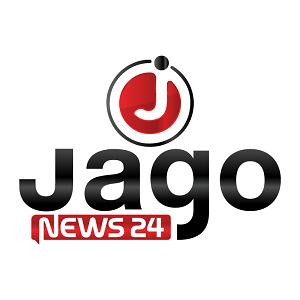Meat on a budget: Collectors' markets deliver for the poor on Eid

In Dhaka, where the rhythm of life pulses through crowded streets and vibrant markets, a unique market pops up every Eid-ul-Azha.
It’s a day of sacrifice, devotion, and community, where the air carries the scent of fresh meat and the spirit of giving. For Muslims, the act of sacrificing an animal is more than a ritual—it’s a commitment to share, to uplift, and to ensure no one goes without. One-third of the meat from each sacrificial animal is set aside for the poor, a gesture rooted in compassion.
But in the capital’s densely packed neighbourhoods like Malibagh, Moghbazar, and Badda, this act of charity sparks a vibrant, bittersweet economy of its own—one where surplus meat becomes a lifeline for some and a poignant opportunity for others.
It began through the poor people who collect sacrificial meat going door to door but having no means to preserve the meat, they began selling it instantly at a very cheap price. And their buyers were mainly opportunist restaurateurs. These restaurateurs wait for the Eid to hoard meat to meet the demand of few months.
But, now commoners from middle-class also became buyers of those meet.
By noon on the day of sacrifice, the streets transform. Temporary shops spring up along the rail track near Malibagh level crossing. Here, men, women, children and day-labourer-turned-butchers-for-one-day gather, their hands heavy with large polythene bags, their voices calling out prices.
The meat, fresh from the morning’s sacrifices, glistens in the sunlight—beef priced between Tk 500 and 800 per kilogram, depending on quality. Head meat, bones, and mixed cuts go for as low as Tk 500-520 per kg. For many, this is a chance to buy what they couldn’t otherwise afford. For others, it’s a way to make ends meet.
Jalil Mia, a resident of Shantinagar, stands at one of these stalls, carefully inspecting a cut of beef. At Tk 800 per kg, it’s not cheap, but it’s fresh, sacred meat from a sacrificial cow. “I bought 3.5 kg,” he tells a local reporter with a quiet smile. “It’s for my family. We couldn’t sacrifice this year, but this meat—it feels special.”
His words carry the weight of gratitude, a reminder that for the middle and lower-middle classes, these roadside markets offer more than just affordability. They offer a connection to the spirit of Eid, a way to partake in the tradition despite financial constraints.
Nearby, Habibul Bashar balances bags of meat as he prepares to travel to Narsingdi. He’s purchased 8.2 kg for Tk 5,600—a steal at roughly Tk 700 per kg. “It’s for my family,” he says, his voice tinged with pride. “We’ll cook together, share stories, and celebrate.” For Habibul, the meat isn’t just food; it’s a bridge to home, to loved ones, to moments of togetherness. Yet, as he walks away, the scene behind him tells another story. Some sellers, often the poor themselves or those who assist with the slaughter, are here not just to share but to survive. They collect surplus meat from households, meat that would otherwise spoil without proper storage, and sell it to earn a small profit.
At Moghbazar’s Wireless level crossing, a woman arranges cow heads and leg meat on a plastic sheet. Her hands move swiftly, her eyes scanning for buyers. “This is what we do,” she says softly to no one in particular. “We help with the cutting, and we get some meat to sell. It’s how we manage.” Her words linger, a quiet testament to resilience. These sellers, often overlooked, are the backbone of this fleeting market. They navigate the delicate balance of honouring the sanctity of the sacrifice while meeting the practical needs of survival.
The scene is both chaotic and harmonious. Buyers haggle, butchers chop, and children dart through the crowd, their laughter cutting through the hum of commerce. The meat, once part of a sacred act, now fuels a cycle of giving and receiving. For some, it’s a chance to taste beef they rarely afford. For others, it’s a way to stretch limited resources. And for all, it’s a reminder of the deeper meaning of Eid-ul-Azha: community, sacrifice, and the shared hope of a better tomorrow.
As the sun dips lower, the temporary shops begin to thin out. Polythene sheets are folded, and unsold meat is packed away. But the stories remain—Jalil’s quiet joy, Habibul’s anticipation, the woman’s unspoken strength. In Dhaka’s crowded corners, where sacrifice meets survival, the meat market of Eid is more than a transaction. It’s a tapestry of faith, resilience, and human connection, woven together under the open sky.

